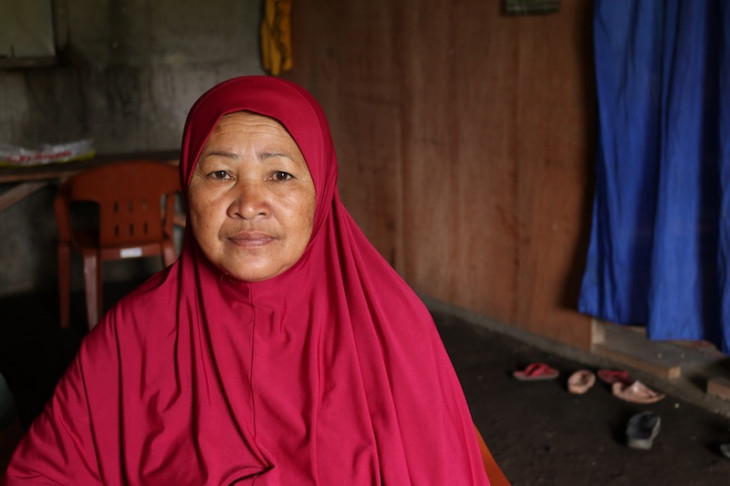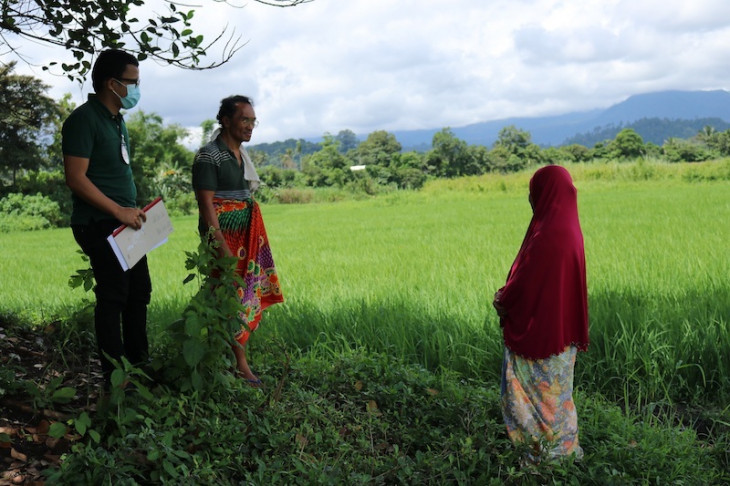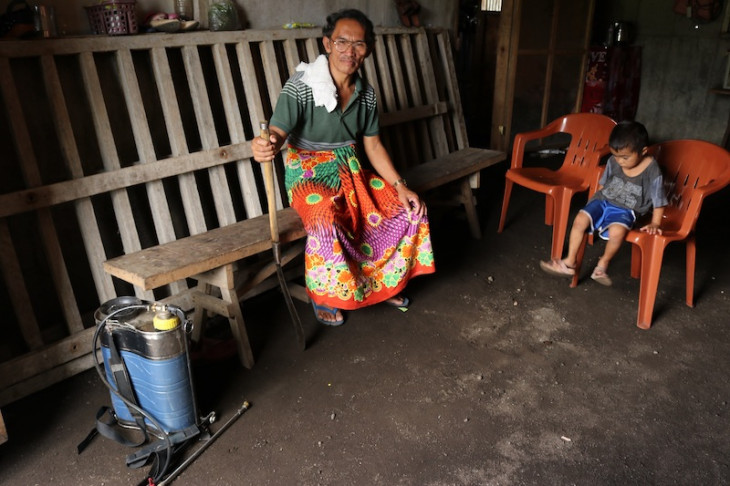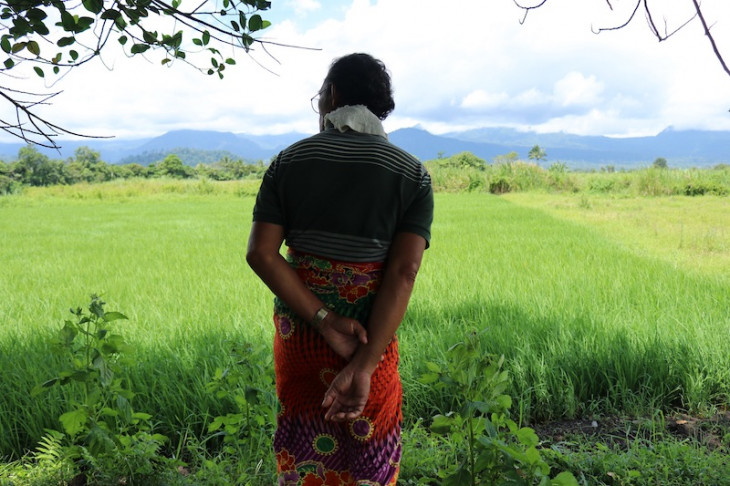
With patience and resolve, a conflict-affected family in Butig braves the COVID-19 pandemic

Nestled in mounds of tall grass and trees, Ragayan was among the five villages of Butig town that suffered from the hostilities between the government forces and the Maute Group in 2016. Many of its residents fled for Marawi City, only to be displaced again by the five-month armed conflict in 2017.
Upon arrival, we saw a woman waving at us. Even with a face mask on, her smile radiated through and she was clearly delighted to see visitors.

Tata's family was one of the 352 households in two conflict-affected villages of Butig that received conditional cash grants from the ICRC. The grants aimed at helping families restore their sources of livelihood. Amer SANGGACALA/ICRC
Fifty-two-year-old Tata and her kin are one of the 250 families living in the area. "Tough times," she said, as she opened the gate to her bungalow that was built with the hard work of her eldest daughter. Inside, we met Tata's daughter-in-law who held her month-old baby, and her husband who was seemingly asleep. Even before we could ask, Tata narrated her story.
"I have four children who are all married. My eldest daughter, however, is divorced. She has two kids who are now under my care," she said, while shushing the young ones playing tag. "We used to live in the village chairman's house. After my daughter's divorce, she worked night and day to have this house built."
She was at ease to tell the rest of her story to us, humanitarian workers from the International Committee of the Red Cross (ICRC), as we have been visiting Butig and assisting the conflict-affected communities of this fifth-class municipality.
"I recall the time we evacuated to the municipality of Buldon in Maguindanao, leaving our house in haste with nothing but the clothes we were wearing. It was one of the hardest periods of my life. Every other day was a struggle, I was broken, devastated even," she said, trying her best to stop her tears from falling.
But that brokenness did not hinder Tata from moving on. Having sab'r, or patience, was and continues to be her bastion of hope. "Alhamdulillah, things have gradually gotten better," Tata brightened up. "We now have a roof over our heads and our rice field continues to prosper. I have been reunited with my family and the joy of us being together helps me forget my misfortunes."

My conversation with the couple continues before the rain poured and soon it was time for us to leave. AMER SANGGACALA/ICRC
I asked her how their harvest had been, knowing that the conditional cash grant the ICRC provided to her family in September 2019 had been used for their farm.
Cash transfer programmes allow families the flexibility to use money for what they identify as their needs – be it food, water, health care, shelter, livelihood or the children's education. For this project, cash grants amounting to 12,000 Philippine pesos, which is approximately 244 US dollars, were provided each to 352 mostly farming families in Ragayan and Poctan to improve their livelihood.
"It has been prosperous," Tata said. The family used to borrow fertilizers from some people in their village. During harvest, they would pay with two sacks of rice for every sack of borrowed fertilizer.

Macapantao shows us the sprayer and bolo they were able to buy using a portion of the grant. AMER SANGGACALA/ICRC
"We did not have much choice but to go for this deal. But with the PHP 12,000 conditional cash grant, we were able to buy rice seeds, farming tools, insecticides and above all, our own fertilizers. We no longer had to borrow fertilizers, which meant we had the harvest all to ourselves."
Tata then called her husband of over 30 years, Macapantao, and asked him to show us the sprayer and bolo sitting behind the door. "We got these from your support," he piped in. "And they have been of great help to our farming."
Wearing a traditional malong, Macapantao led us on a short walk outside their home. After a few minutes, a wide field of greenery appeared. "Here it is!" the couple beamed with pride.

Their first harvest since the cash grant was in February 2020. The second planting season was in March, just as lockdowns due to COVID-19 began. The family will be harvesting rice again at the end of August. AMER SANGGACALA/ICRC
"In a month or so, we will have our second harvest since getting the grant. We've reached over 30 sacks of rice grains from our first harvest and hope to make more this time," Macapantao said.
And what about the pandemic and its effect?
"With the COVID-19 lockdown and many jobs getting affected, our own produce along with the government's relief operations helped us through. Without the cash grant, we would have to pay six sacks of rice to the lender, and to pay four more after this harvest. Farming is our main source of income, so we hope and pray that our harvests will sustain us in the coming months, and hopefully years," said Tata.
"We sell some portions and keep the rest for ourselves. The repair of the irrigation canal, which was a cash-for-work project for our community last year, improved the water supply and we no longer have to fear a drought," said Macapantao, who shared that one of their sons was among the 100 workers who earned income from that ICRC project.
Soon, rain started to pour across the green fields, almost as a signal that it was time for us to leave. On the ride back to our office in Iligan City, we reflected on the resilience of Tata and her family. It's never easy to start all over again, but Tata has demonstrated that it takes a lot of patience and resolve – and some timely support – to turn things around.
This story was first published by Mindanews.



